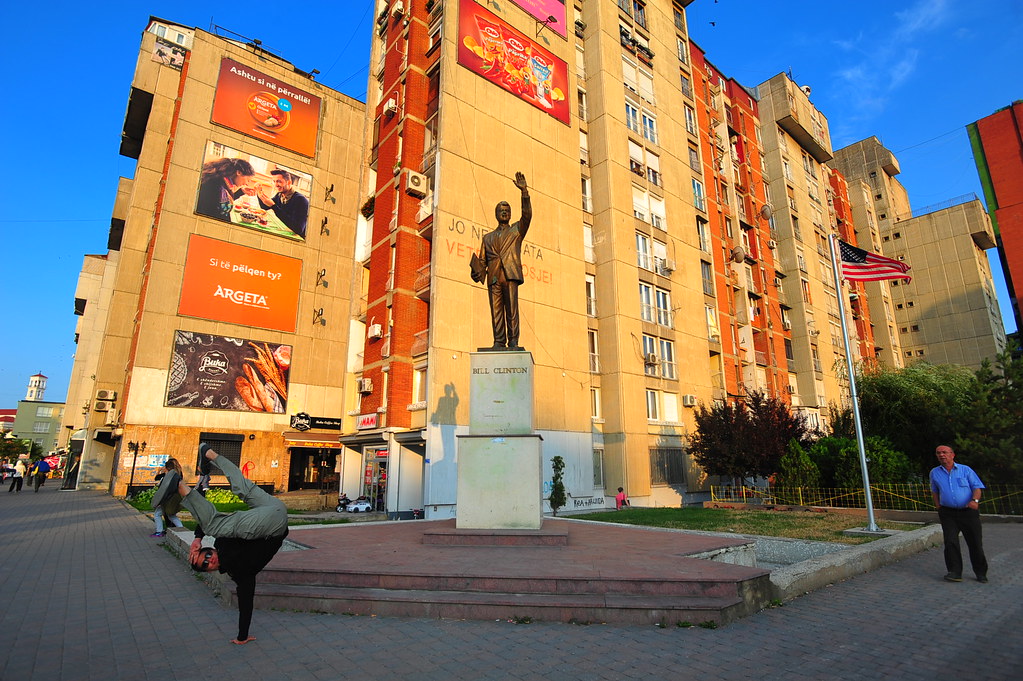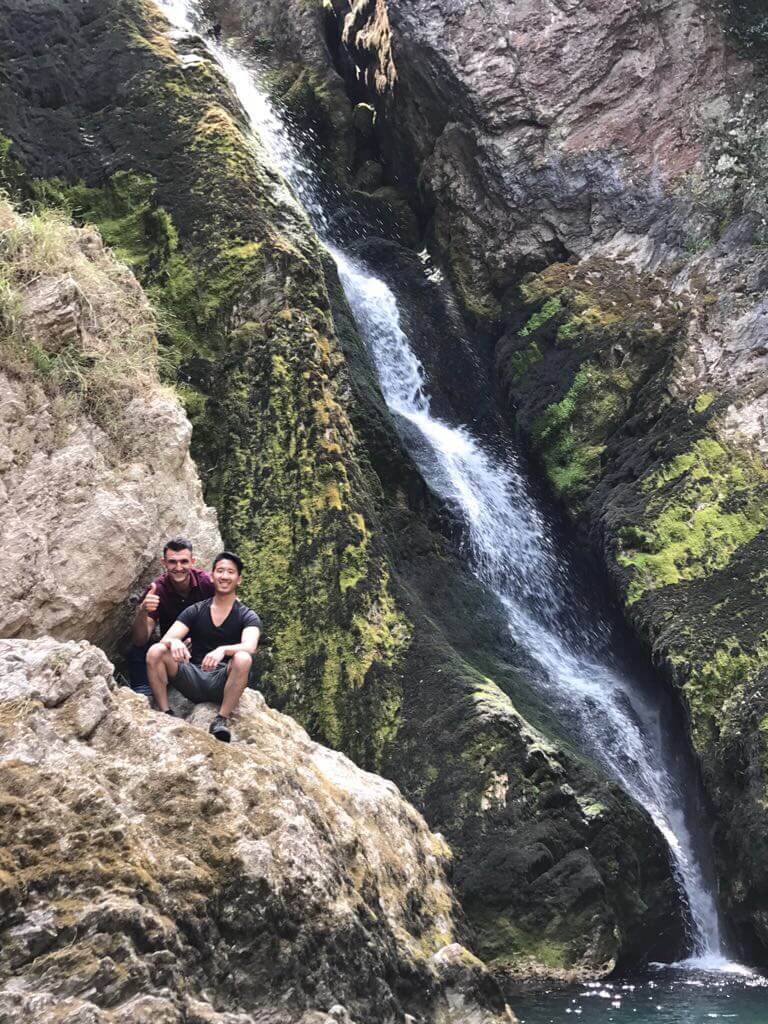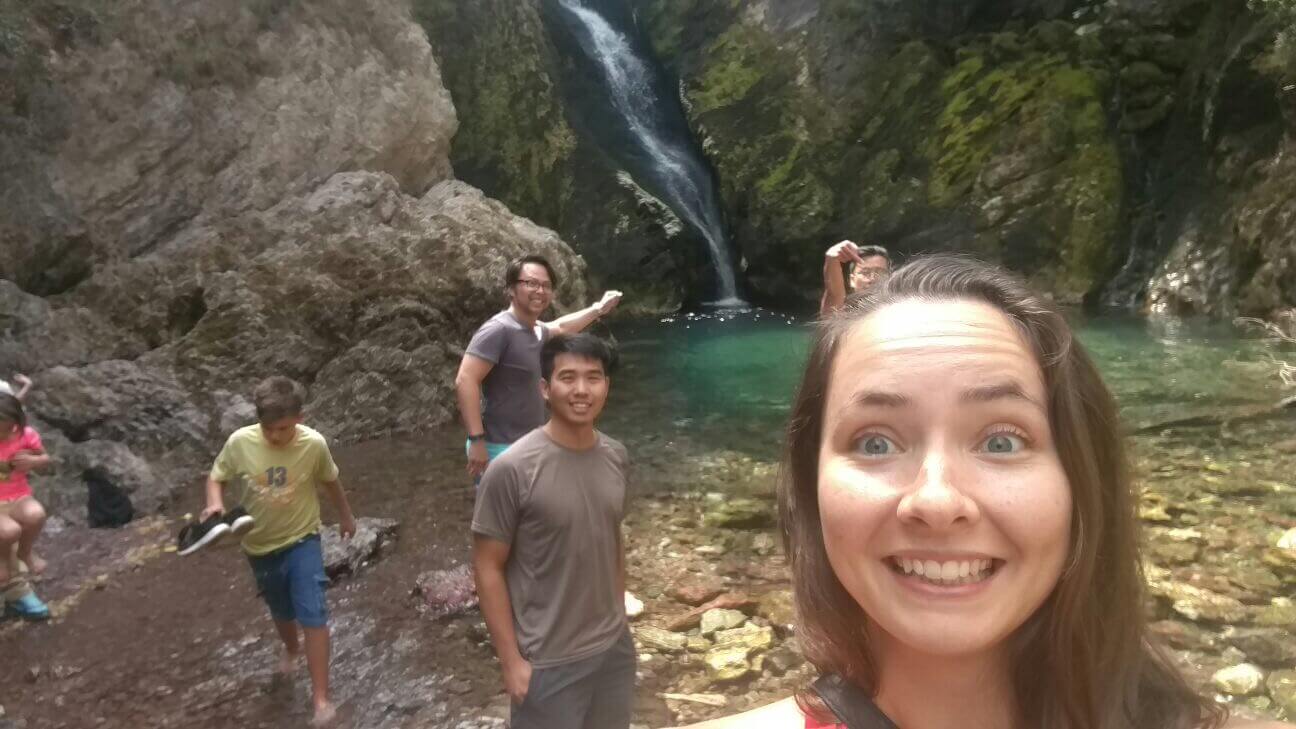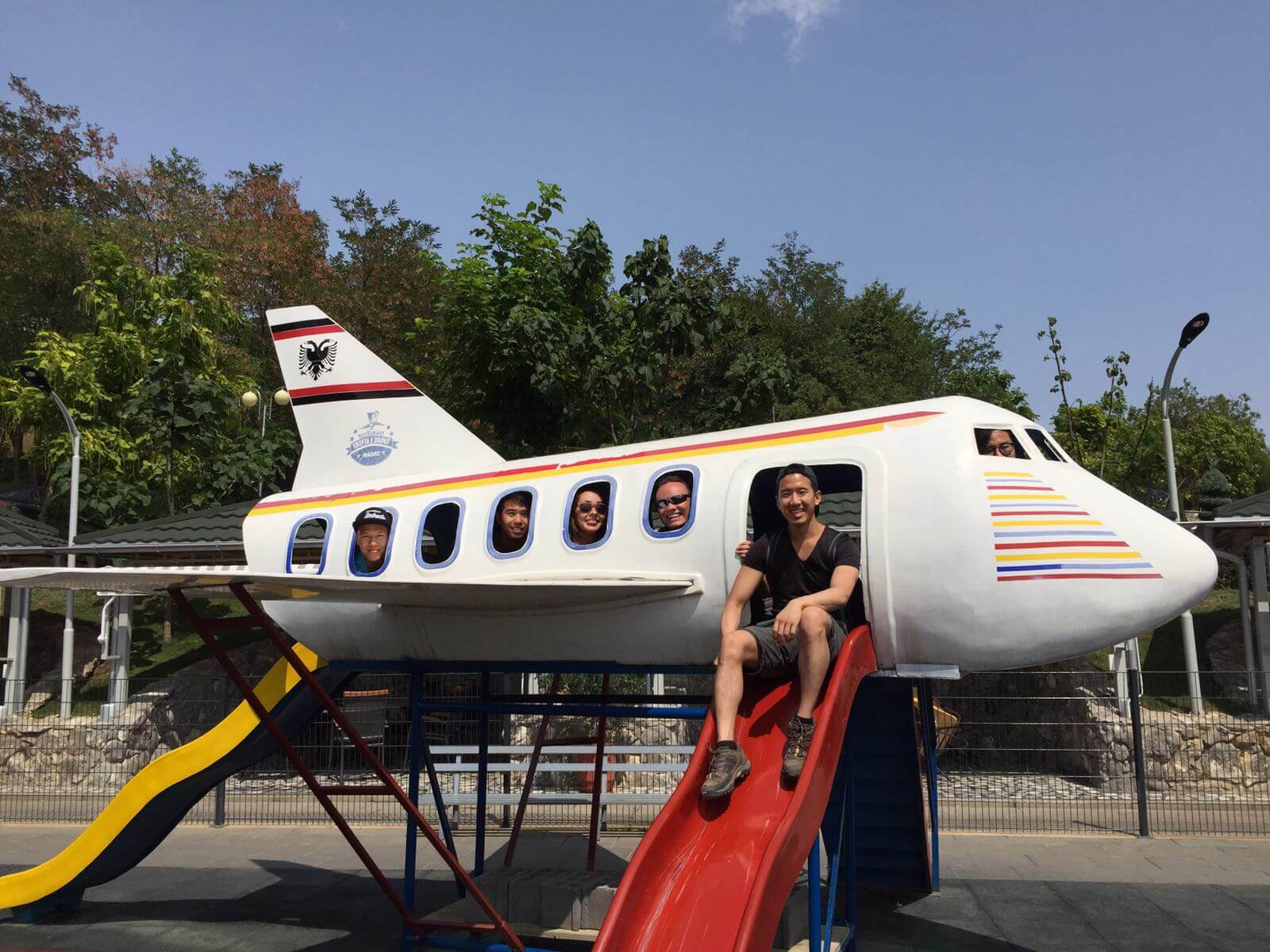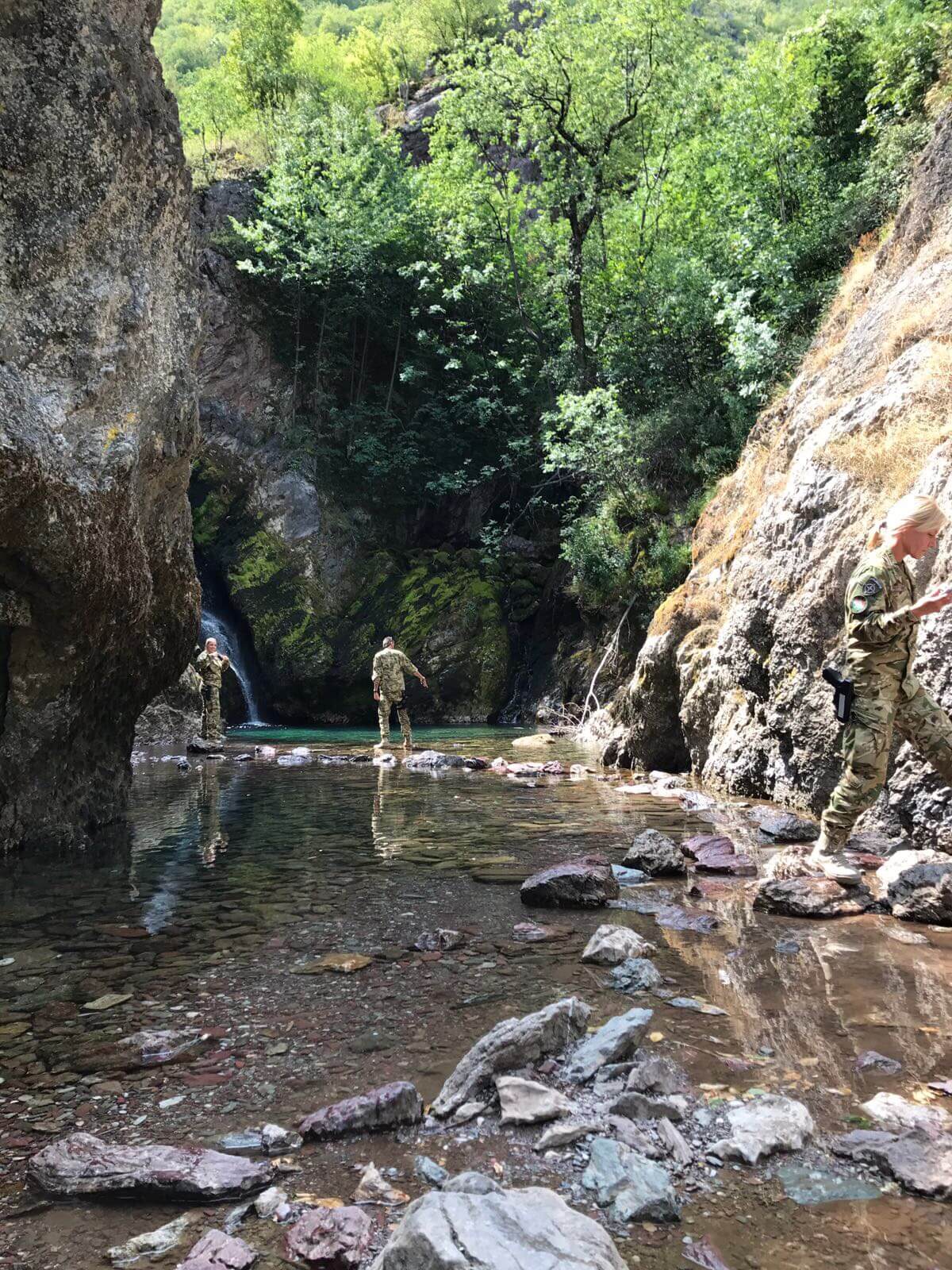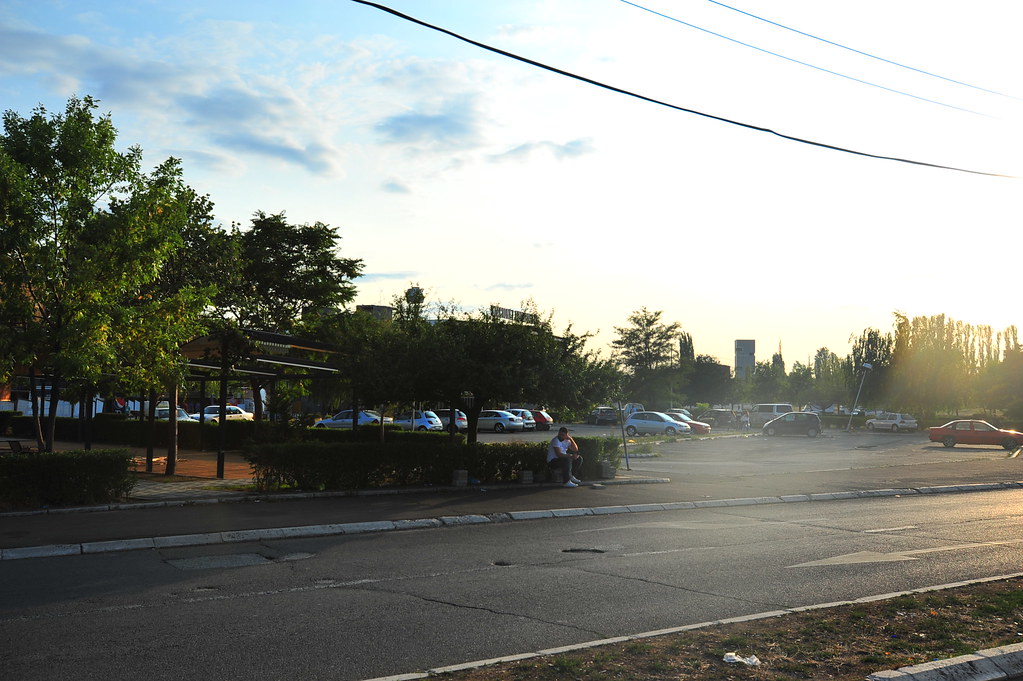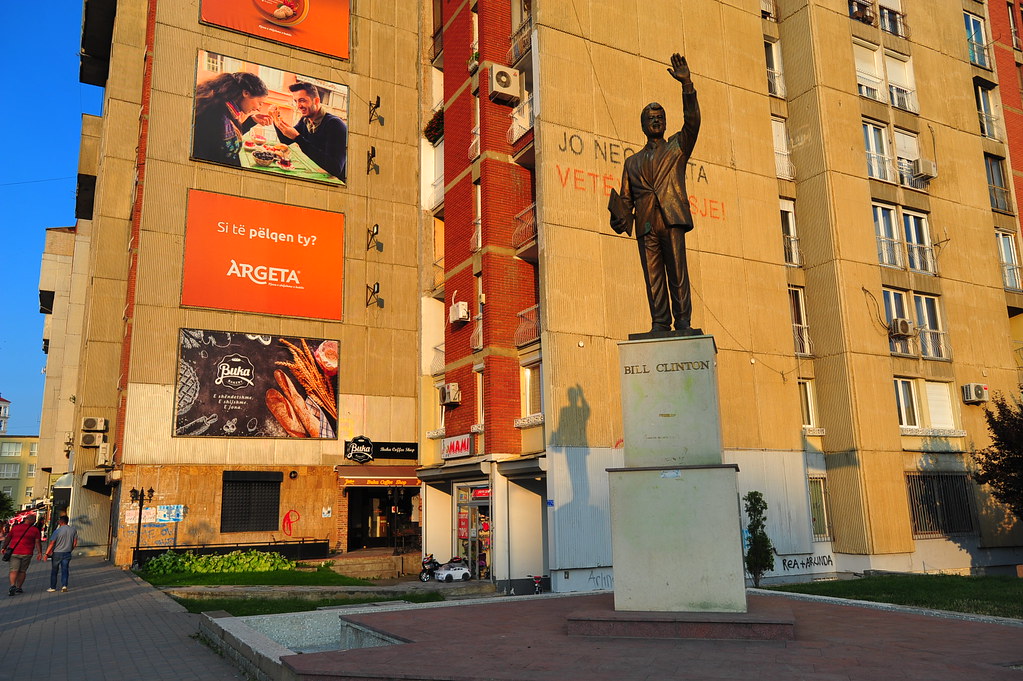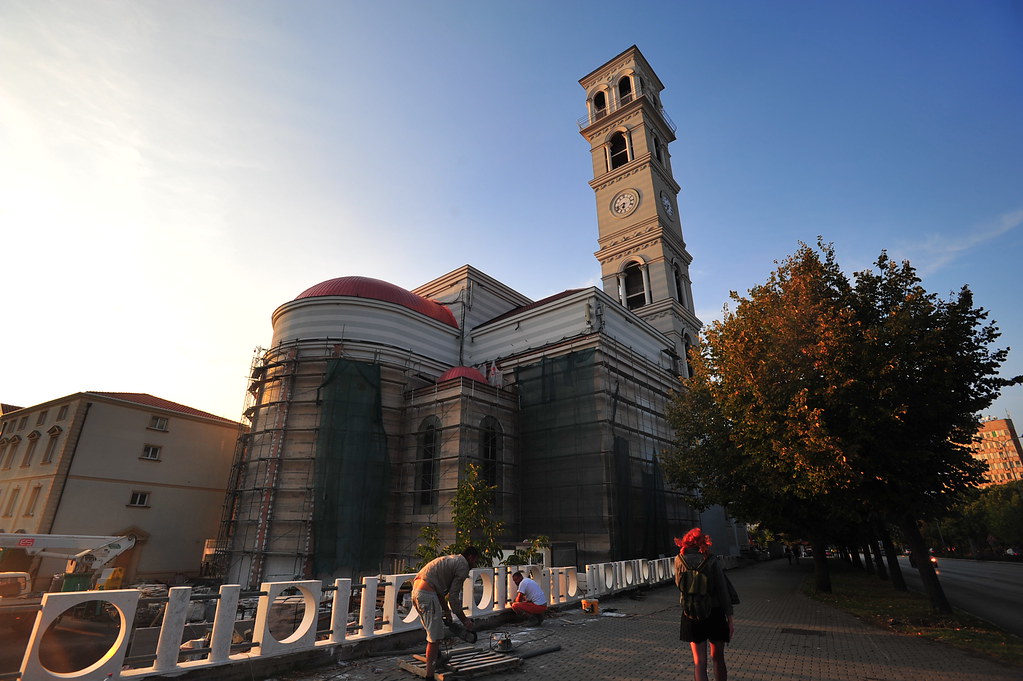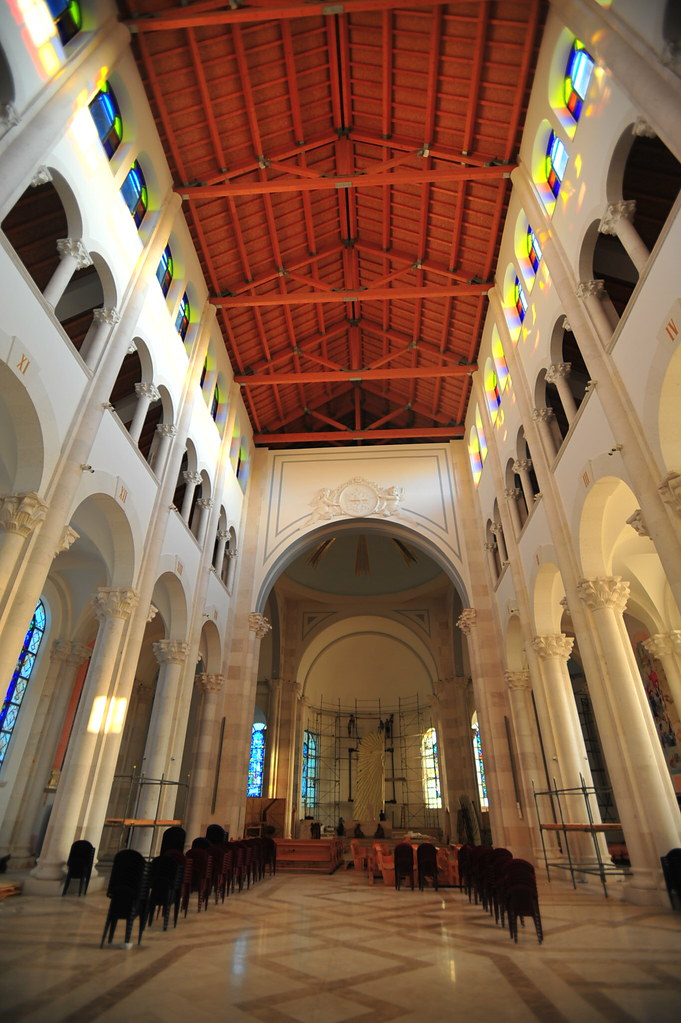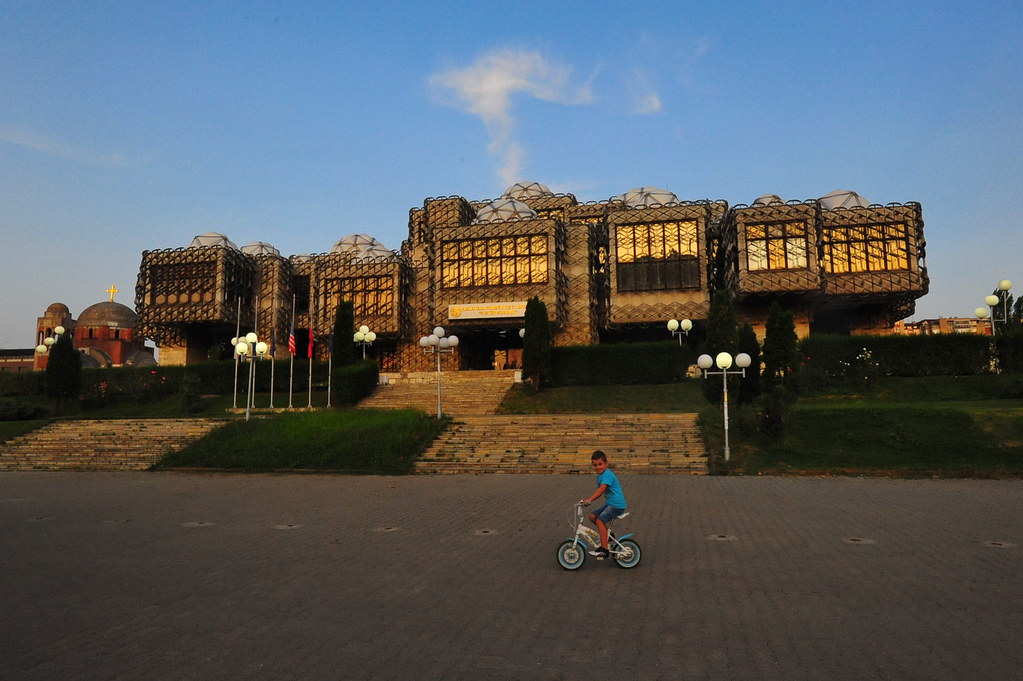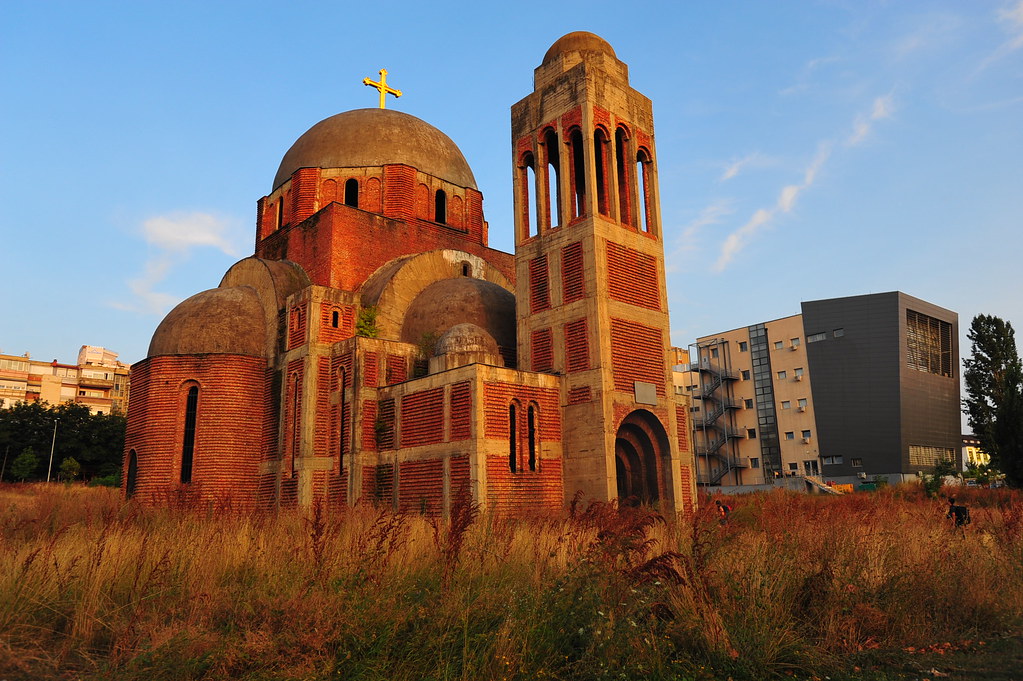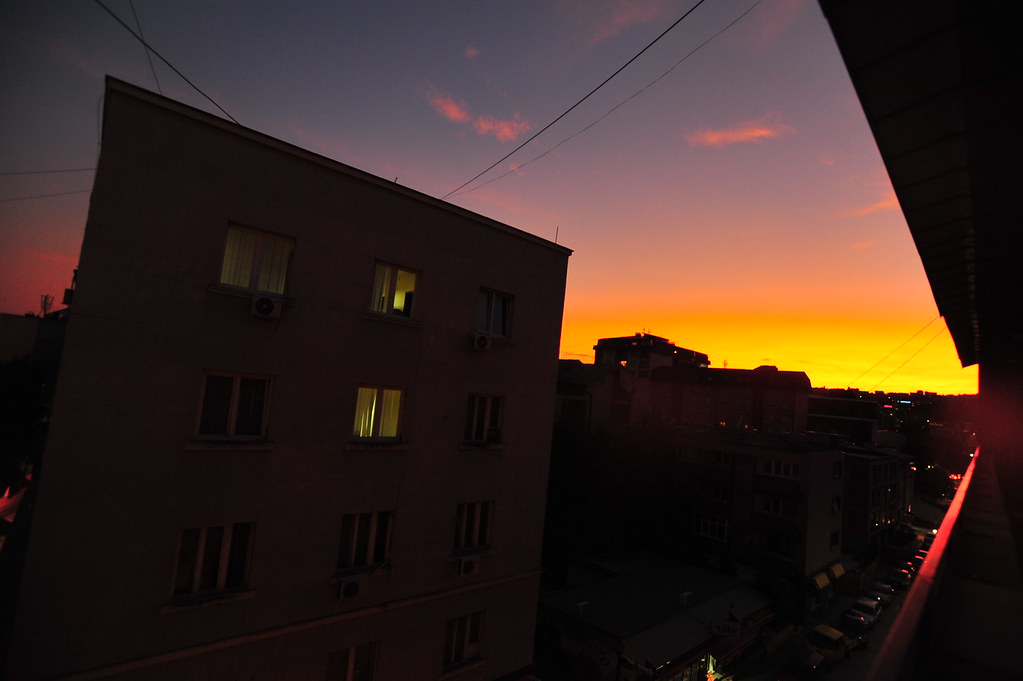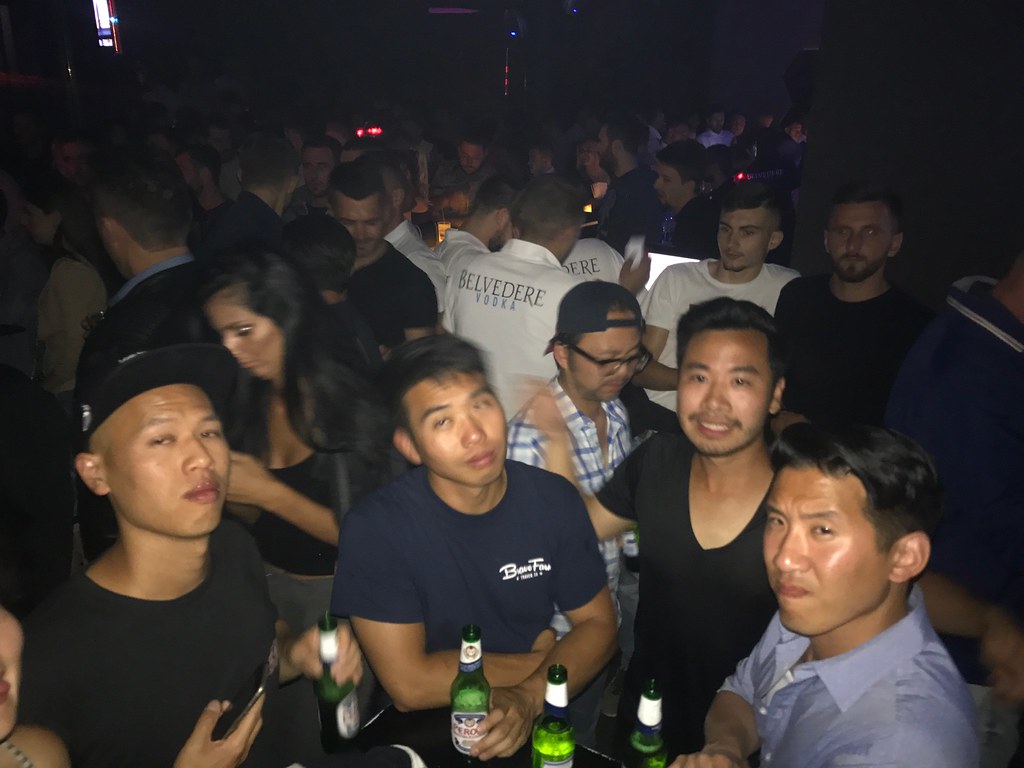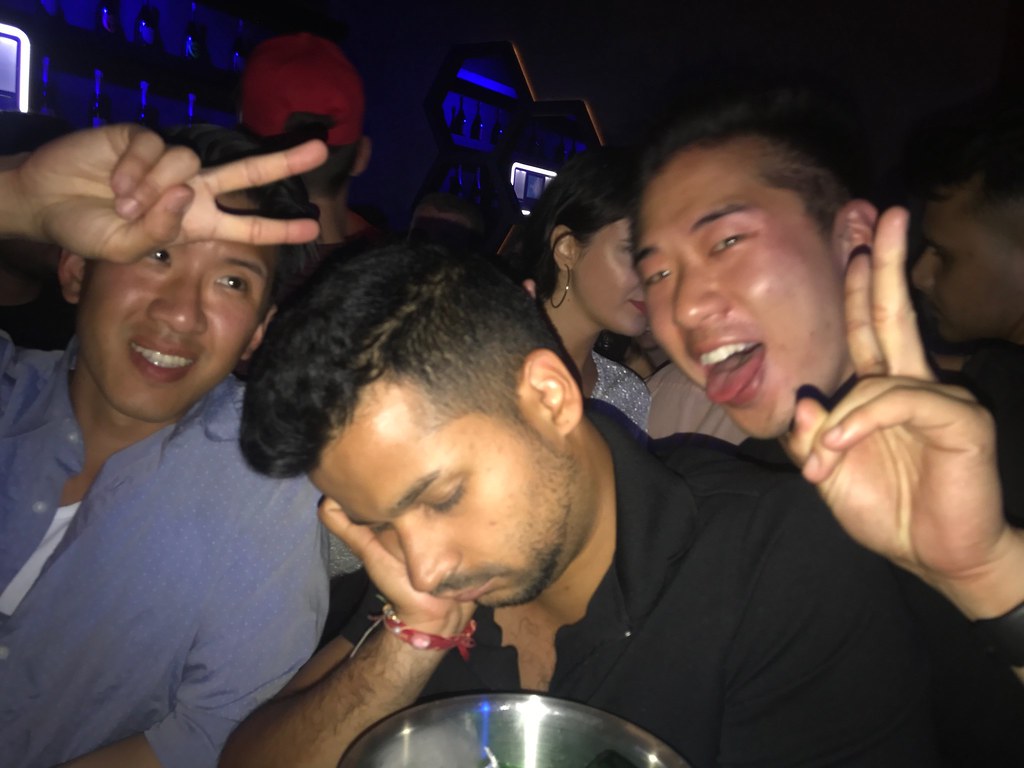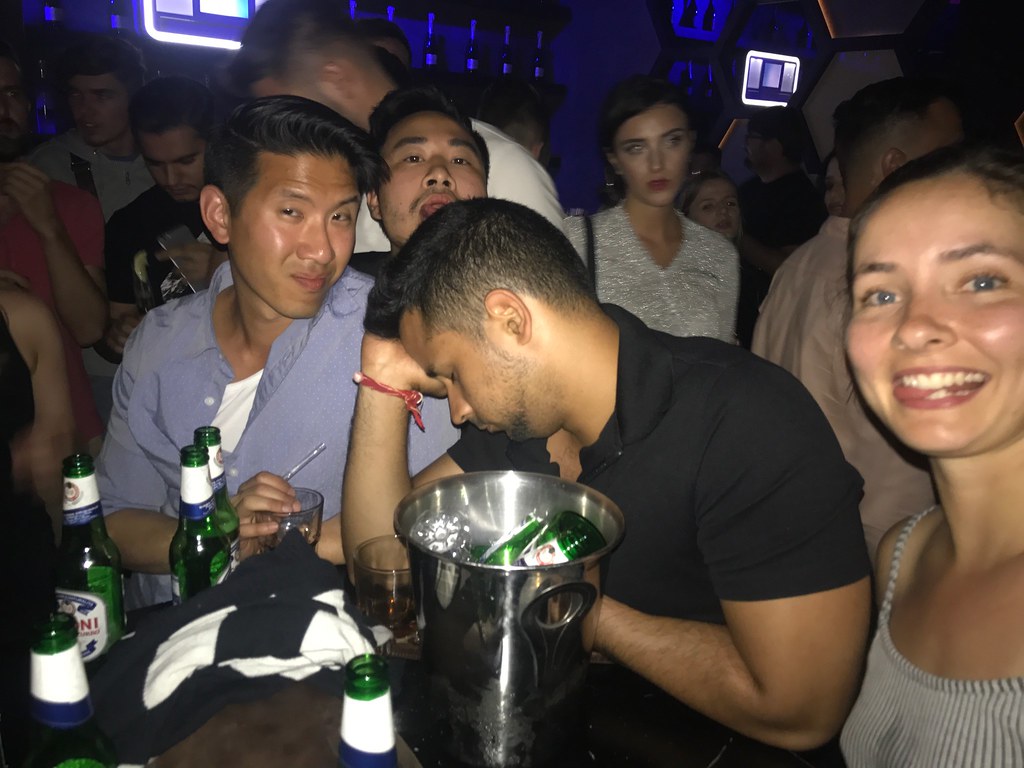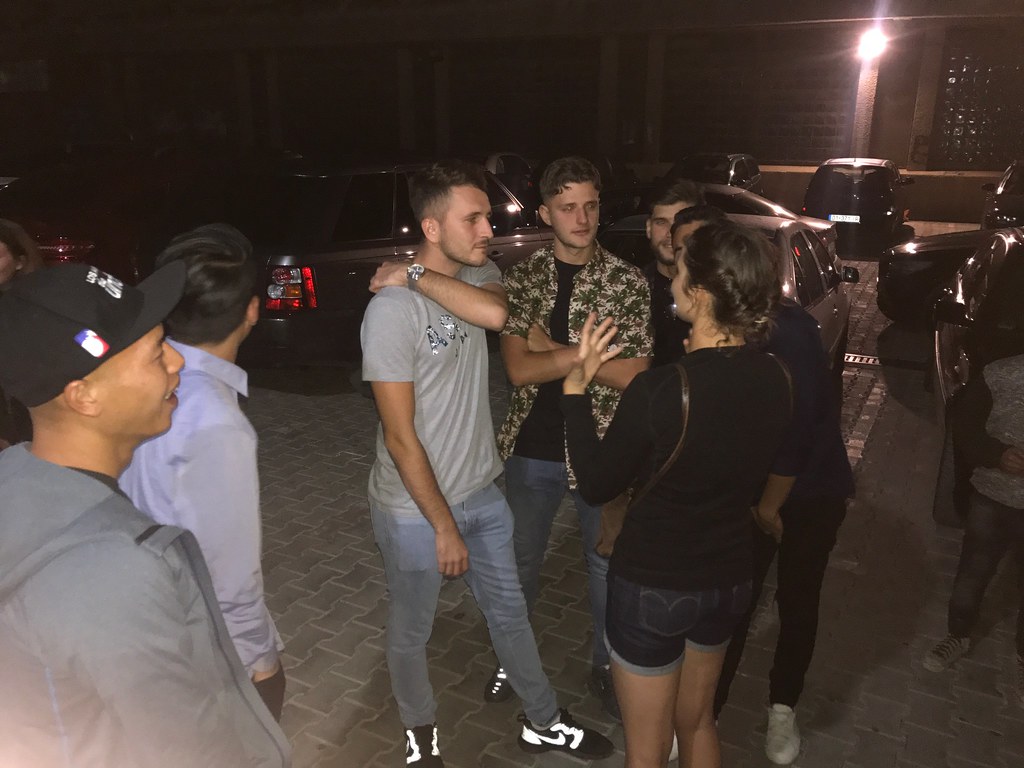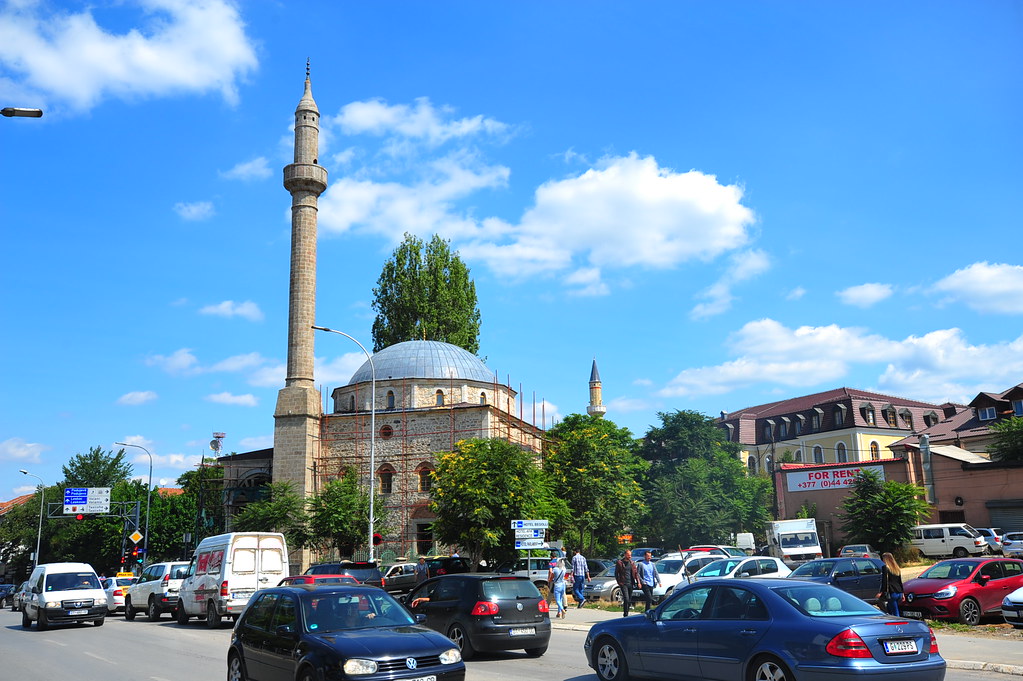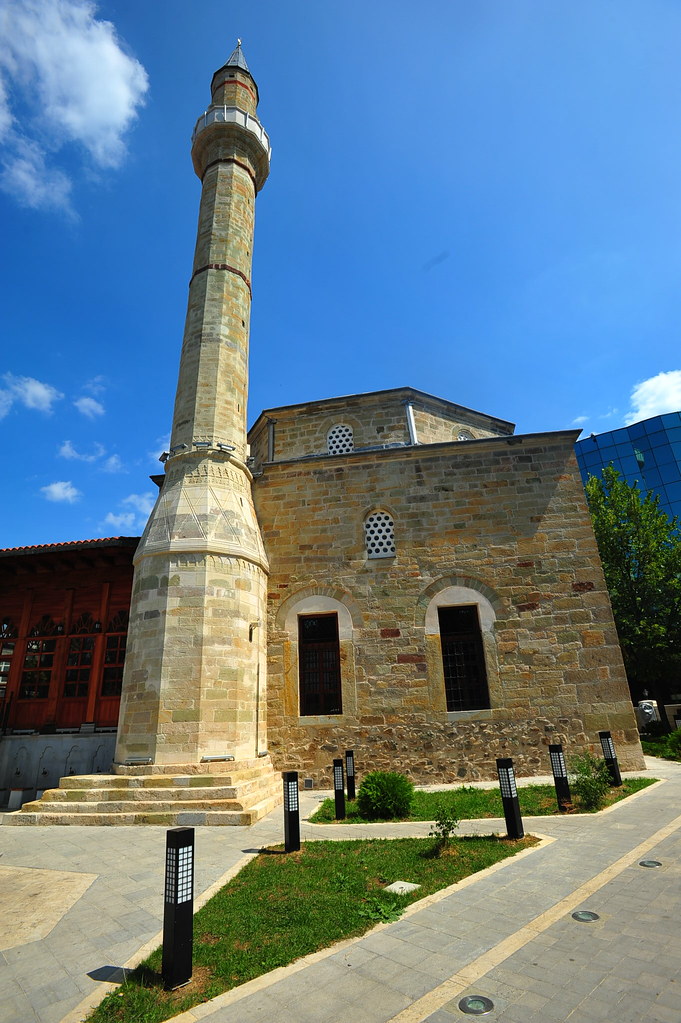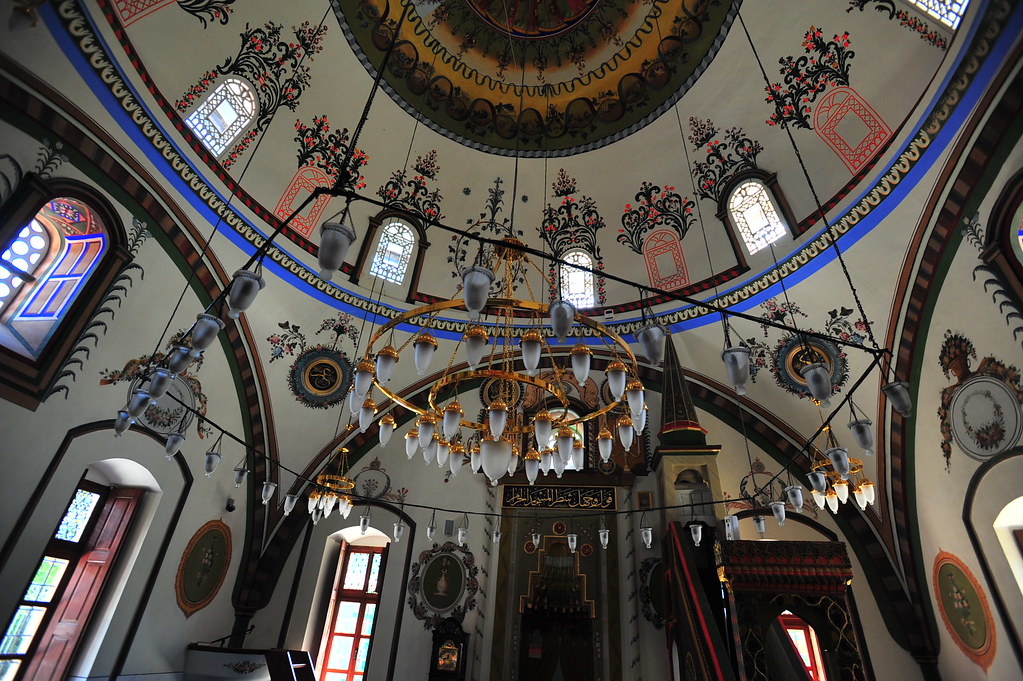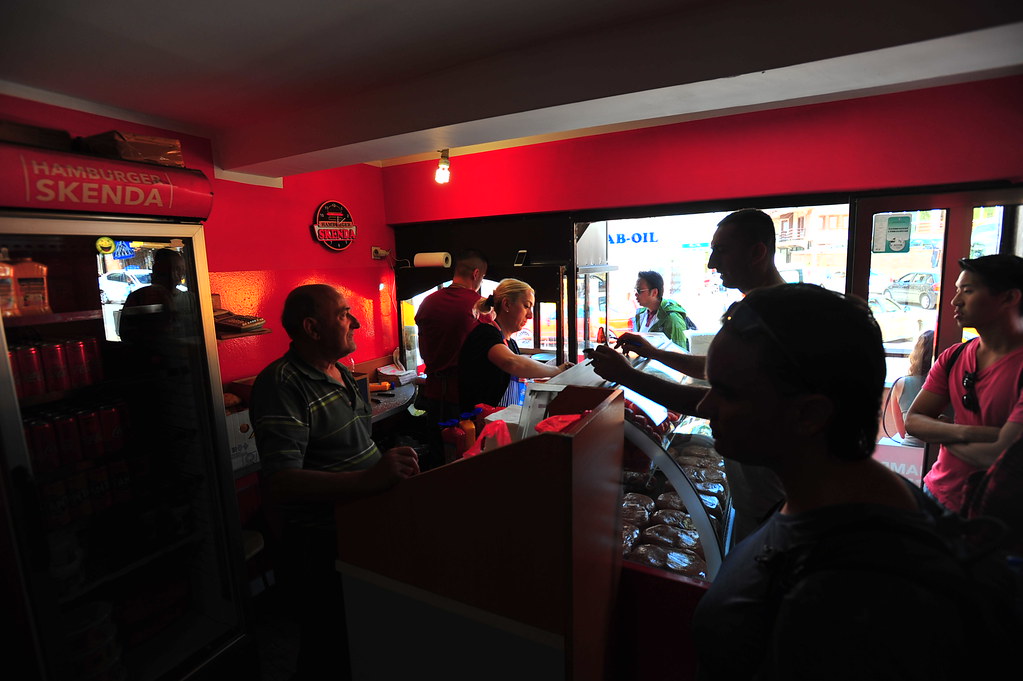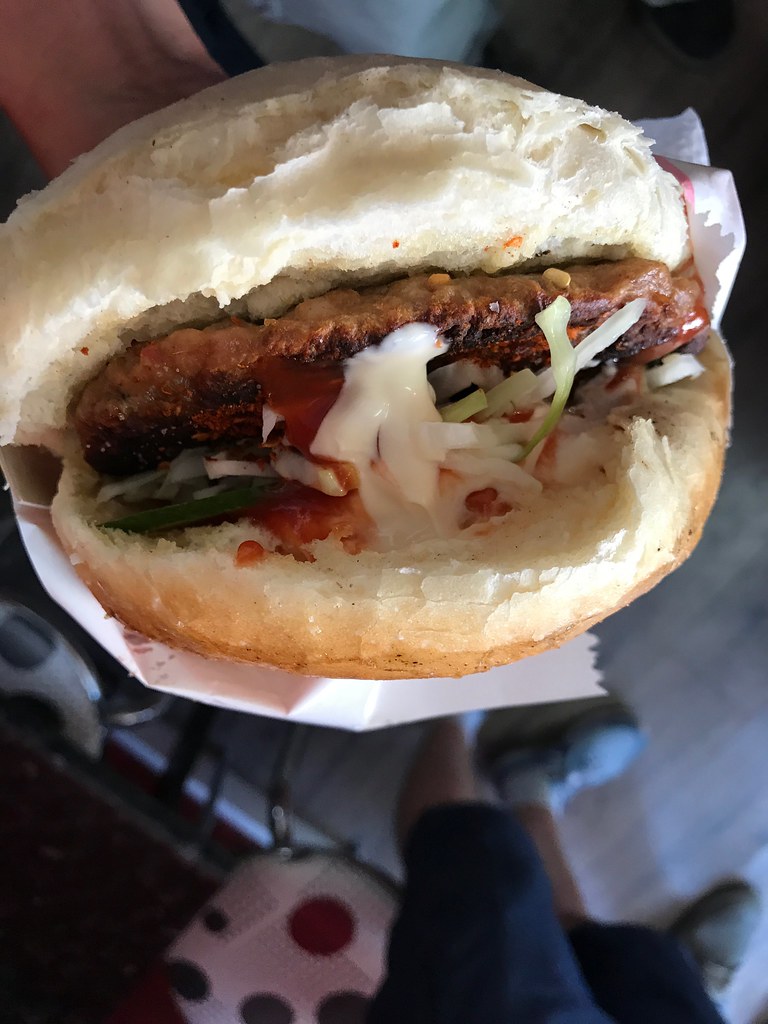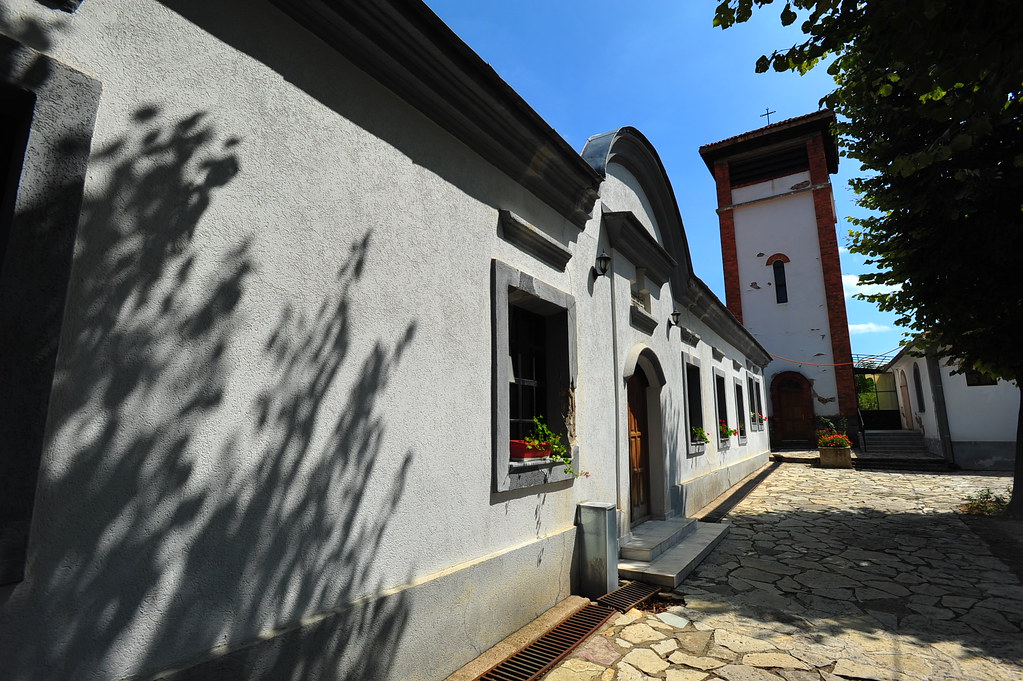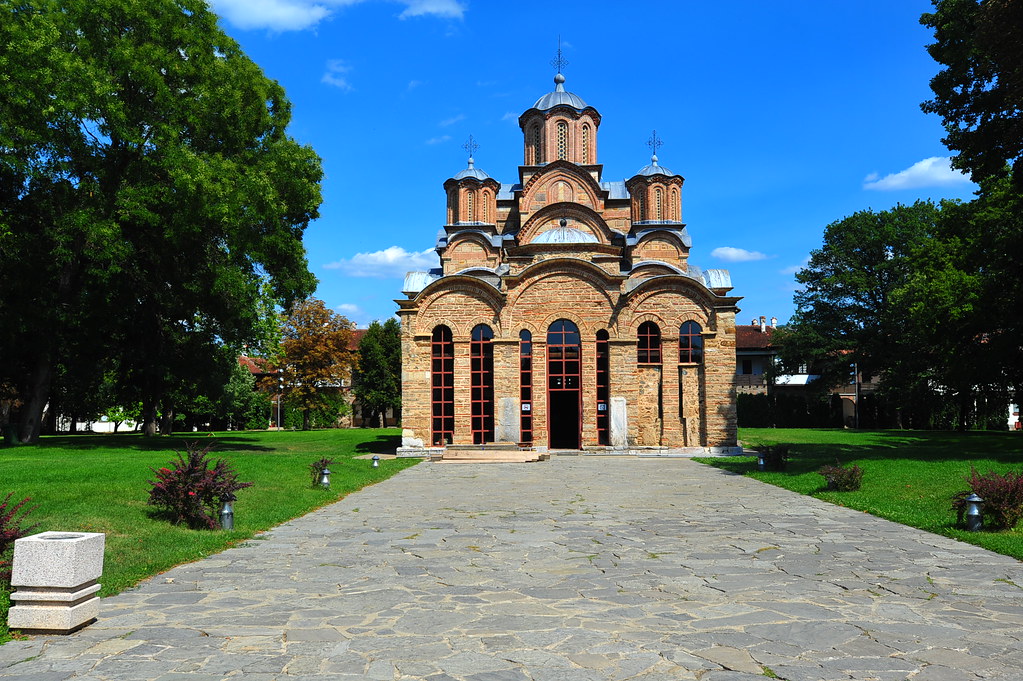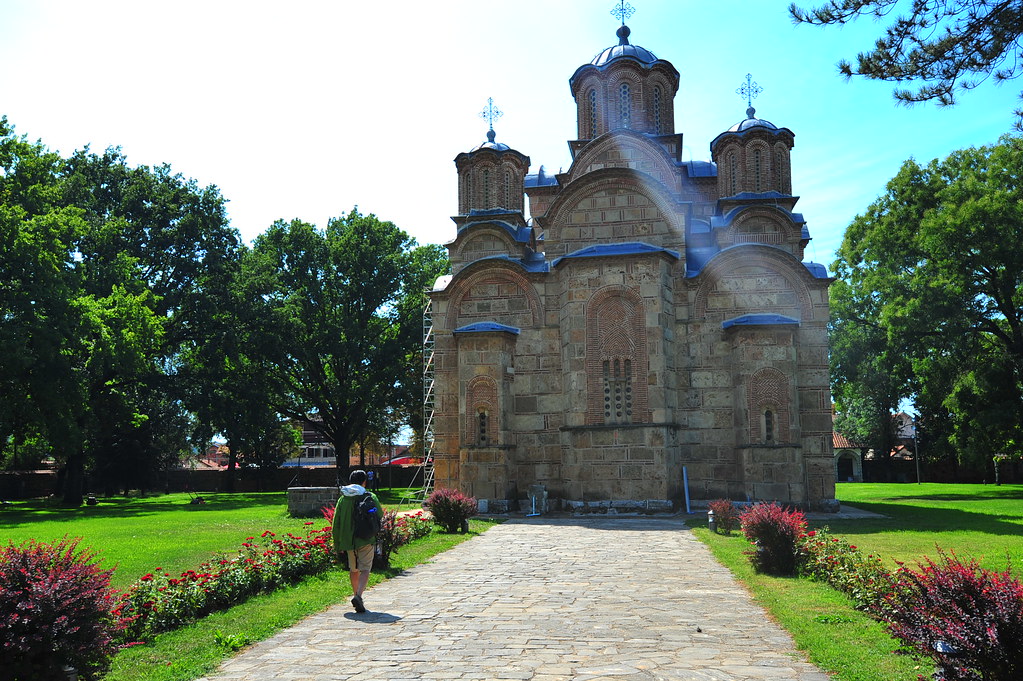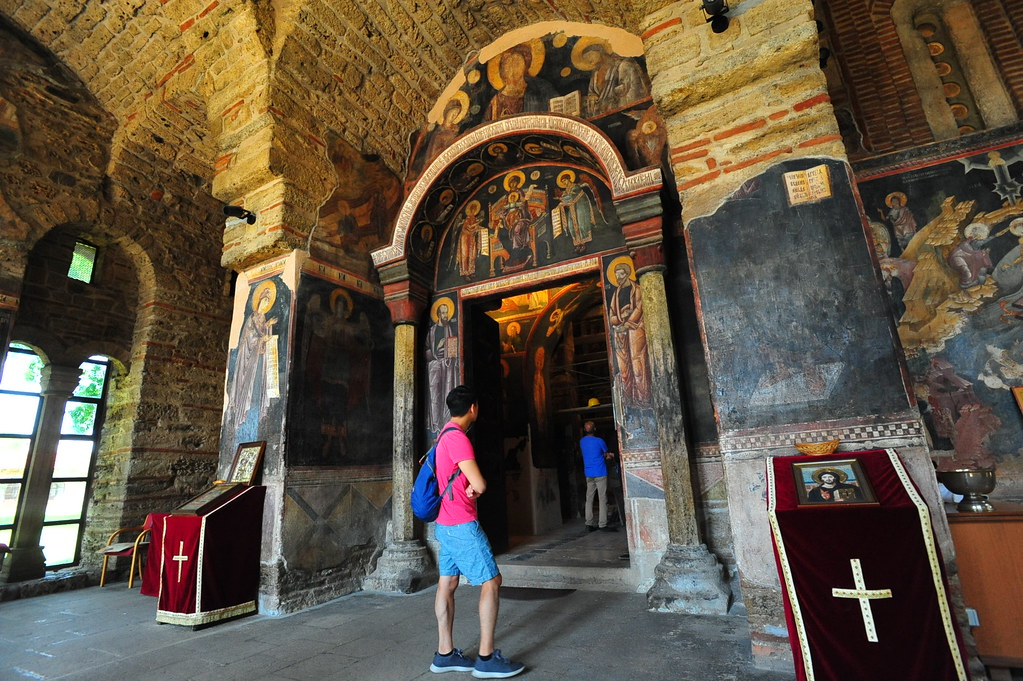sonder n. the realization that each random passerby is living a life as vivid and complex as your own—populated with their own ambitions, friends, routines, worries and inherited craziness—an epic story that continues invisibly around you like an anthill sprawling deep underground, with elaborate passageways to thousands of other lives that you’ll never know existed, in which you might appear only once, as an extra sipping coffee in the background, as a blur of traffic passing on the highway, as a lighted window at dusk.
While the group headed out in the morning to check out the nearby waterfalls in Radavc, I slept in and got a much needed study session in. This is what I missed out on:
The group returned to Hostel Sarac at 4pm via hitchiking (too impatient to wait for the bus), after which we booked cabs to the bus station to catch the every-20 minute 1 hour bus to Pristina for 3 euros per person. Once we arrived at the station a bus driver immediately asked if we were going to Pristina as his empty bus was pulling away. That was convenient!
We arrived into the capital city of Pristina at 4pm turning down the 5 euros per cab to take us to our hostel and instead opting to walk 30 minutes north to Hostel Han.
From the bus station we looped around the southern part of Ilaz Kodra road up northwest to the famous Bill Clinton Statue, who was credited for leading NATO into bombing Serbia and preventing any worsening of the Kosovo refugee crisis.
We then walked up Bill Clinton Boulevard to Mother Teresa Cathedral:
The church was still under renovation when we visited, but the elevator was broken when we tried to go up the bell tower for the views.
Then we crossed the adjacent park into a university campus, where we got shots of the enigmatic National Library of Kosovo, controversial for its design that looks like a chain of armored eggs.
By it is an abandoned church that was unmarked on my maps.
Then we crossed over west into the pedestrian mall of Boulevard Mother Teresa. . . .
. . . and checked into our hostel just in time for a balcony sunset.
After getting changed, a fellow Dutch traveller named Selma staying at our hostel joined along with us for a boozy dinner at café Soma. One must understand here that Pristina is primarily café culture; cafés are ubiquitous and nearly all of them are packed with fashionably-dressed young folk who pay a euro a day to keep themselves occupied due to the high unemployment rate and the country’s abundance of youth.
After dinner, we went out to party at the only club open on a Tuesday night: Duplex.
Don’t expect a lot of dancing as the space is filled men guarding their tables, with girls dancing in the periphery.
Some of us fared better than others.
It was not until we left the club at 2:30am where a reflection of the Balkans took place in the parking lot: a group of Albanian 20 year old local men, who took refuge and grew up in the UK during the war, approached us in the parking lot and asked where we were coming from as we were walking out of Duplex. When they found out we were mostly US citizens/Americans, they became extremely surprised at what could bring a bunch of travelers/tourists to a place like Kosovo.
As they described losing lost close family members during the conflict with Serbian Nationalists in the 1990s, they dived into Balkan politics and tried to get us to choose sides. However, they then found out that the person they were speaking to, Mihaela — who had joined our group just in time yesterday in Peja — was a mix of Serb-Bosnian-Montenegrin but that more importantly, she was born in Serbia.
A mixture of shock and meaningful attempts at mutual respect unfolded over the next hour in 50F temperatures as the rest of our group stood in awe at this mini battle of intellectual wits ensued between the groups. We would learn so much from this exchange; you can see the cognitive dissonance unfold among these Albanians as they tried to explain undying pride in the “red and black” flag of Albania over the meaningless “Blue and Gold” Kosovo flag that represented their homeland, while also unable to forgive the actual government of Albania-proper during the war. Simultaneously we could see them being respectful to Mihaela while also unable to hold back their lifelong attitude towards all Serbian nationalists (not that Mihaela counted herself as a nationalist, but she became sort of an inadvertent conduit for their projections). They told her: “if someone found out you were Serbian, they would’ve killed you in that club right then and there” with genuine concern in their tone of voice. However, their disbelief that standing before them in Kosovo was a person that they saw as having Serbian roots was palpable.
The conversation was harrowing. Although we left them with hugs and cordiality when we parted at 3:30am, Mihaela remarked that as much as she learned from this dialogue, it was overwhelming to still know that enough still remains in these parts of the world, that the youth even today still desires systematic retribution against another group of people. And this is how history repeats itself. War sucks.
And yet we must remember that as the unemployment rate remains high in Kosovo and 53% of the population here is under 25, everyone here you observe here in Kosovo are likely going through some kind of existential life transition, navigating a future while holding onto their youth as the tumultuousness of the world they know continues to change around and without them.
Once you appreciate this very reality, then perhaps the generalizing can take a pause and realize the people whom you thought were just locals hanging out at a parking lot in a nightclub are actually real human beings with experiences as vivid and real as yours. And I hope that the ones we met today would feel the same way about Mihaela.
The next morning we woke up at around 10am intellectually and physiologically hungover, and took a leisurely morning stroll up north of the hostel past the Skanderbeg Monument, dedicated to the Albanian hero who resisted the Ottomans.
We then checked out both Jashar Pasha Mosque and the Imperial Mosque.
As we continued up Ibrahim Luftiu, I grabbed a Skenda Burger for 1 euro at the recommendation of my friend Lauretta who hails from here.
And up a hill a few streets over along Shkodra, we visited Saint Nicolas Church, another Serbian Orthodox church that has been renovated over and over since tensions between the local Albanians and Serbians had led to constant vandalizing.
After a few minutes here, we headed back to the hostel and took our cabs to Gracanica, another Serbian Orthodox enclave under heavy security from the majority Albanian population around it:
And after a few minutes here we took our cabs back to the Pristina Bus Station for our 2 hour bus ride to Skopje.
- At time of posting in Pristina, Kosovo, it was 25 °C - Humidity: 35% | Wind Speed: 23km/hr | Cloud Cover: partly cloudy

